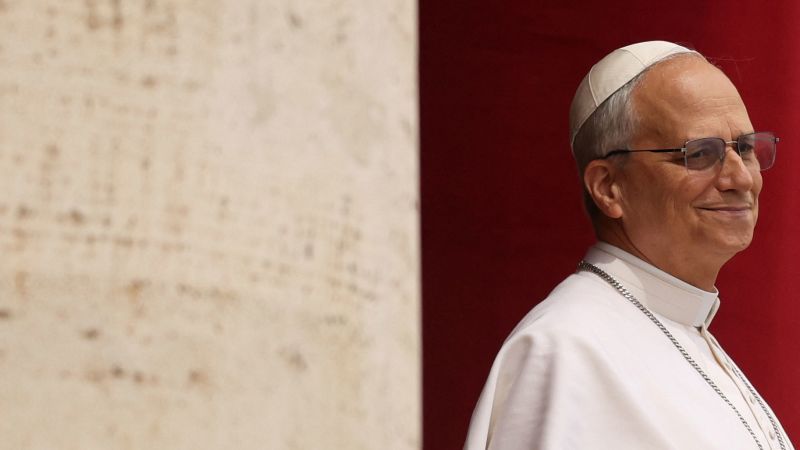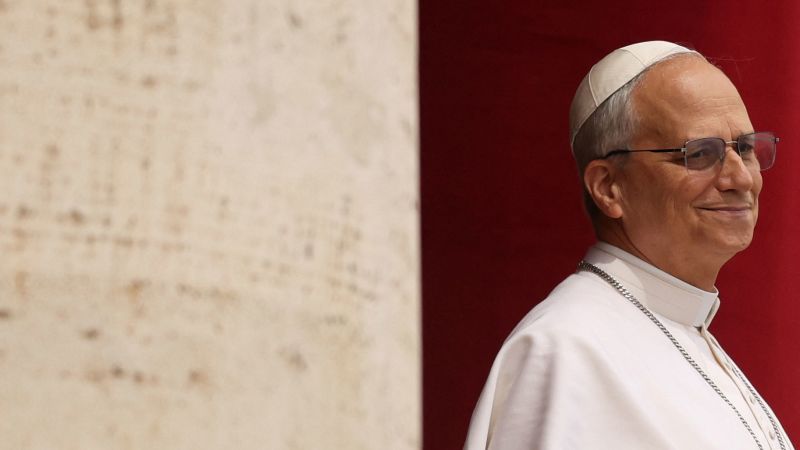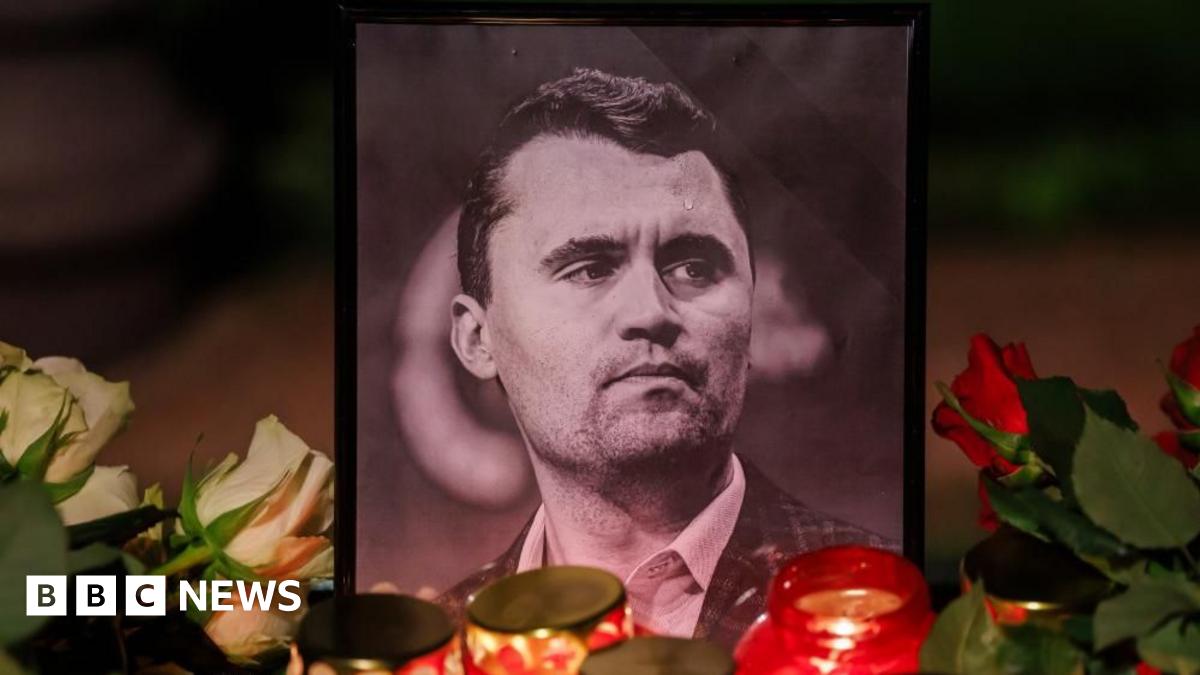Understanding Pope Leo XIII: His Reforms And Impact On The Catholic Church

Welcome to your ultimate source for breaking news, trending updates, and in-depth stories from around the world. Whether it's politics, technology, entertainment, sports, or lifestyle, we bring you real-time updates that keep you informed and ahead of the curve.
Our team works tirelessly to ensure you never miss a moment. From the latest developments in global events to the most talked-about topics on social media, our news platform is designed to deliver accurate and timely information, all in one place.
Stay in the know and join thousands of readers who trust us for reliable, up-to-date content. Explore our expertly curated articles and dive deeper into the stories that matter to you. Visit Best Website now and be part of the conversation. Don't miss out on the headlines that shape our world!
Table of Contents
Understanding Pope Leo XIII: His Reforms and Impact on the Catholic Church
Pope Leo XIII (1878-1903) stands as a pivotal figure in the history of the Catholic Church, remembered for his significant reforms and enduring impact on the institution's relationship with the modern world. His papacy, spanning a quarter of a century, witnessed profound social, political, and intellectual changes, prompting him to address crucial issues with a blend of tradition and pragmatism. This article delves into the key aspects of his pontificate, exploring his major reforms and their lasting consequences.
Leo XIII: A Response to Modernity
The late 19th century was a period of rapid industrialization, scientific advancements, and rising secularism. These trends presented challenges to the Catholic Church, prompting anxieties about its relevance and authority. Leo XIII, acutely aware of this changing landscape, sought to reconcile the Church's teachings with the realities of modernity, a strategy significantly different from the more confrontational approach of some of his predecessors. His approach emphasized engagement rather than isolation, a key factor in shaping his legacy.
Key Reforms Under Leo XIII
Leo XIII's papacy was marked by a series of significant reforms across various spheres:
1. Social Teachings and Rerum Novarum: Arguably his most enduring legacy, Rerum Novarum (1891) is an encyclical addressing the social question—the plight of the working class in the face of industrial capitalism. This landmark document condemned both laissez-faire capitalism and socialism, advocating for a just and equitable society that recognized the dignity of labor and the rights of workers. It introduced the concept of a "living wage" and promoted the formation of worker organizations, profoundly influencing Catholic social thought and inspiring the development of Catholic social justice movements. Learn more about the impact of Rerum Novarum .
2. Engagement with Modern Philosophy: Unlike some previous Popes who actively opposed modern philosophical trends, Leo XIII recognized the need for dialogue. He encouraged the study of scholastic philosophy, believing it could provide a robust framework for engaging with contemporary thought. This approach led to a renewed interest in Thomistic philosophy and its integration into Catholic intellectual life.
3. Ecumenical Initiatives: While not achieving full communion with other Christian denominations, Leo XIII demonstrated a greater openness to ecumenical dialogue than his predecessors. He fostered improved relations with some non-Catholic churches, demonstrating a willingness to find common ground on shared beliefs.
4. Missionary Activity: Leo XIII actively supported the expansion of Catholic missions worldwide, particularly in Africa and Asia. He established new missionary societies and encouraged the training of missionaries, reflecting the Church's global ambition to spread its message.
The Lasting Impact of Leo XIII's Pontificate
Leo XIII's reforms had a profound and lasting impact on the Catholic Church. His social teachings continue to shape Catholic social justice movements globally. His engagement with modern thought fostered a more nuanced approach to intellectual life within the Church. His emphasis on social justice and the dignity of the human person remains central to Catholic teaching today. While some of his specific strategies might be viewed differently through a modern lens, his fundamental commitment to adapting the Church to the challenges of a changing world remains a powerful example for future leaders.
In Conclusion:
Pope Leo XIII's papacy represents a crucial turning point in the Catholic Church's history. His willingness to engage with modernity, coupled with his commitment to social justice, left an enduring mark on the Church's doctrine, its social engagement, and its relationship with the world. Understanding his reforms provides vital context for interpreting the trajectory of the Catholic Church in the 20th and 21st centuries. Further research into his encyclicals and papal pronouncements will offer a deeper understanding of this significant historical figure.

Thank you for visiting our website, your trusted source for the latest updates and in-depth coverage on Understanding Pope Leo XIII: His Reforms And Impact On The Catholic Church. We're committed to keeping you informed with timely and accurate information to meet your curiosity and needs.
If you have any questions, suggestions, or feedback, we'd love to hear from you. Your insights are valuable to us and help us improve to serve you better. Feel free to reach out through our contact page.
Don't forget to bookmark our website and check back regularly for the latest headlines and trending topics. See you next time, and thank you for being part of our growing community!
Featured Posts
-
 Yankees Rising Star Gets A Day Off Following Weekend Heroics
May 13, 2025
Yankees Rising Star Gets A Day Off Following Weekend Heroics
May 13, 2025 -
 Milwaukee Apartment Blaze Four Fatalities Hundreds Evacuated
May 13, 2025
Milwaukee Apartment Blaze Four Fatalities Hundreds Evacuated
May 13, 2025 -
 The Papacy Of Leo Xiii Bridging Divisions Implementing Reform
May 13, 2025
The Papacy Of Leo Xiii Bridging Divisions Implementing Reform
May 13, 2025 -
 England And Wales Brace For Thunderstorms And Potential Flooding
May 13, 2025
England And Wales Brace For Thunderstorms And Potential Flooding
May 13, 2025 -
 Warsaw Shopping Centre Fire Tusk Points Finger At Russia
May 13, 2025
Warsaw Shopping Centre Fire Tusk Points Finger At Russia
May 13, 2025
Latest Posts
-
 The Charlie Kirk Debate Examining His Influence On Young Voters
Sep 13, 2025
The Charlie Kirk Debate Examining His Influence On Young Voters
Sep 13, 2025 -
 The Ayrshire Wedding Crash A Four Year Investigation Concludes
Sep 13, 2025
The Ayrshire Wedding Crash A Four Year Investigation Concludes
Sep 13, 2025 -
 Major Climate Pattern Change What To Expect
Sep 13, 2025
Major Climate Pattern Change What To Expect
Sep 13, 2025 -
 Has Charlotte Flair Surpassed Ric Flairs Legacy The Nature Boy Weighs In
Sep 13, 2025
Has Charlotte Flair Surpassed Ric Flairs Legacy The Nature Boy Weighs In
Sep 13, 2025 -
 Fantasy Nascar Bristol 2025 Asterisk Mark Report And Analysis
Sep 13, 2025
Fantasy Nascar Bristol 2025 Asterisk Mark Report And Analysis
Sep 13, 2025
